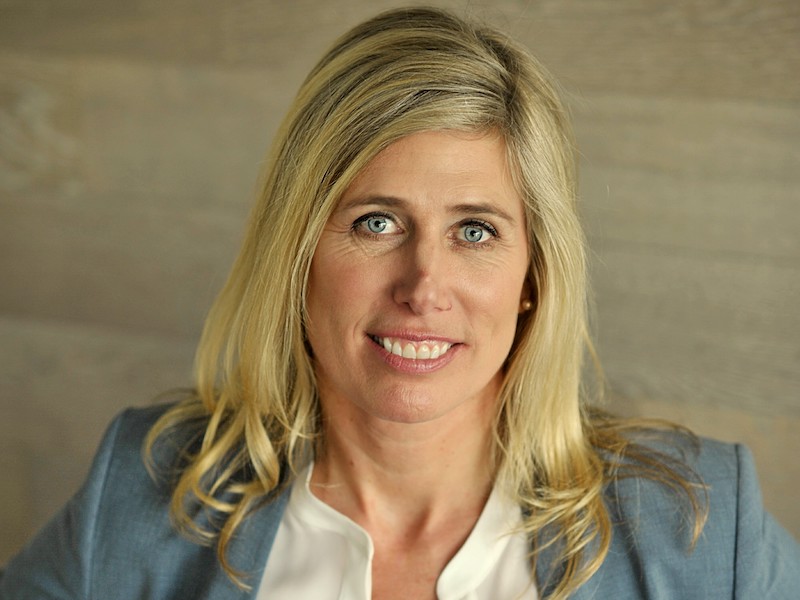

Highlighting the power of the mind to overcome physical obstacles, Silken Laumann, four-time Olympic rower and founder of the charity Unsinkable, shared the struggles she faced after an injury during a warmup for the 1992 Summer Olympics.
“I was the No. 1 ranked rower in the world,” she said during the closing session of Benefits Canada’s 2022 Benefits & Pension Summit on June 1. “I was in the warmup period preparing for a World Cup race and my boat collided with a men’s pair from Germany and their boat shattered, driving 200 pieces of wood into my lower right leg.
“The muscle in my leg was shredded, my ankle was shattered, I had muscle tissue and nerve damage. I got to the hospital in Germany and the doctors told me I would never row competitively again. But going to the Olympics had been my dream since I was 11 years old and I just couldn’t give up on that dream.”
Read: Former NHL goalie discusses battling mental illness in tough workplaces
Ten weeks after the accident, Laumann won a bronze medal at the 1992 Olympic Games. In the wake of that win, her life changed instantly. She was a public figure who was called courageous, inspirational and powerful. “But I was the same person inside. I had all the same fears and doubts and anxieties.”
Then she had two children, wrote books and travelled the country for speaking engagements. There were moments that felt so overwhelming, she said, particularly in relation to raising her children. “Nobody tells you how hard having kids actually is and how having kids reveals your own stuff.”
Following a few particularly challenging experiences that pushed Laumann to a breaking point, she called a friend who connected her to a therapist. “Asking for help — it’s an act of courage for anyone. And when you are a leader in your community, in your family, in your company, it’s even that little bit harder. It takes a lot of courage and help better be there when we’re finally, finally ready to ask for it.”
Through therapy, Laumann was able to understand how she had been affected by childhood trauma, particularly living with a mother who had an undiagnosed mental illness. It helped her understand how she was pushed to a boiling point. And she started to write a book called Unsinkable.
“I thought that book would only be . . . like a journal, but then I published that book [and] it became a national bestseller. I started speaking about my experiences about mental health. And people told me again and again [that] they were experiencing different versions of the same thing.”
Read: How 5 employers are helping staff battle mental-health challenges
Unsinkable, a not-for-profit organization that fills the space between clinical and human support, was born, said Laumann, highlighting how important it is for those suffering from a mental-health issue to feel there’s a community of people who care. “You have a space to play in your colleagues’ mental health, how you accept them and support them and listen to them and how educated you become about mental health — that has an impact on their mental health.”
Unsinkable shares stories about people’s mental-health challenges, creating space for different dialogues, she noted. “Why wouldn’t we want everybody who works with us to be their best selves. To recognize that, not only do we have different personalities and different styles of working, we have different brains to embrace neurodiversity. I have an incredibly neurodiverse family and, to embrace that and allow people to be who they actually are, it contributes to their mental health.”
Organizations must start at the top with their leaders, encouraging them to be more human, open and authentic, said Laumann, noting it’s a step-by-step process. “We have to start having conversations about our mental health and about mental health at work. And it can’t just be something that happens on an every three-month basis.”
Read: Employers continue to highlight mental-health supports, prioritize staff well-being
It’s also important for organizations to have a plan, she added. If employers are going to talk about mental health, they must have resources and a path that can help people through their mental-health journeys at work.
“What supports are in place in the workplace for somebody who opens up and says, ‘I’m really struggling from depression?’ Because, remember, when I finally asked for help, I called a friend. And she didn’t just go, ‘Aha, I don’t know, let me look into it.’ She had a name and that person called me right then. And that’s the kind of path that we want to create within our organizations, so that people feel supported.”
Read more coverage from the 2022 Benefits & Pension Summit.
